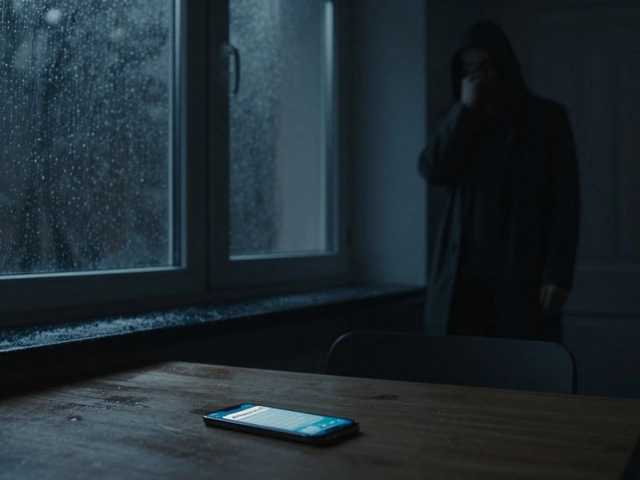Introduction to 'King Bob' and Scattered Spider
In a recent bust that has sent ripples through the cybercrime community, the FBI has unveiled a significant figure allegedly belonging to an alarming cybercriminal gang known as 'Scattered Spider'. Noah Urban, a teenager hailing from Flagler County, Florida, operates online under the moniker 'King Bob'. Urban is at the center of an extensive federal investigation, accused of orchestrating a sophisticated and lucrative cryptocurrency scheme. The teen faces grave charges including conspiracy to commit wire fraud, nine counts of wire fraud, and four counts of aggravated identity theft. If the accusations hold, the potential implications of his alleged activities are staggering.
The Modus Operandi: SIM Swapping and Cryptocurrency Theft
SIM swapping is at the heart of Urban's alleged cybercrime spree. This technique involves tricking mobile carriers into switching a victim's phone number to a new SIM card, often manipulated by the fraudster. This switch enables the perpetrator to intercept messages, calls, and more critically, authentication codes sent to the victim’s number. Using this access, scammers can reset passwords and hijack accounts. In Urban's case, the FBI claims he utilized SIM swapping to steal victims' personal information, resetting their cryptocurrency account details before transferring funds to accounts he controlled.
The allegations paint a picture of a highly organized and calculated operation. According to the federal indictment, Urban, alongside his conspirators, managed to steal over $800,000 from unwitting victims, highlighting the significant financial impact of these cyber crimes. Such schemes are not only financially detrimental but also inflict severe emotional distress on victims, who often face arduous battles to reclaim their digital lives.
'Scattered Spider': A Network of Young Cyber Criminals
The FBI’s revelations about the 'Scattered Spider' gang shed light on the disturbing rise of young individuals involved in cybercrime. The gang allegedly consists of around 1,000 members, predominantly teenagers and young adults, exploiting their technological prowess for illicit gains. Their activities range from SIM swapping and cryptocurrency theft to other forms of cyber fraud.
Urban is purported to be a significant figure within this gang. His skills and audacity have earned him a notorious reputation among his peers. The ability to mobilize and influence such a large group of young individuals underscores the grand scale of the operation. It also raises pressing questions about the measures in place to prevent and counteract the growing tide of youth involvement in cybercrime.
The Charges and Potential Penalties
Noah Urban now faces an uphill legal battle. The charges against him are severe, reflecting the gravity of his alleged actions. Conspiracy to commit wire fraud underscores the organized nature of the operations he is accused of leading. Each of the nine counts of wire fraud points to individual instances where his scheme allegedly succeeded in defrauding victims. Aggravated identity theft charges further amplify the seriousness, indicating multiple episodes of deception and identity misuse.
If found guilty on all counts, Urban confronts the possibility of spending decades behind bars. The potential penalties serve as a stern reminder of the heavy price of cybercrime. Legal experts and observers will closely watch this case, which could set important precedents for how youthful cyber offenders are prosecuted and sentenced.
Beyond Cryptocurrency Theft: Accusations of Leaked Music
Interestingly, Urban's alleged cyber exploits extend beyond financial crimes. Reports suggest he may be linked to the unauthorized release of unreleased music from prominent artists including Playboi Carti, Ariana Grande, and Lil Uzi Vert. While these claims are not part of the formal indictment, they add another layer of intrigue to his profile.
The leaking of unreleased music represents a different spectrum of cybercrime, one that targets the creative industry and potentially causes significant financial and reputational damage to artists. Although not as directly harmful as the financial thefts, these actions underscore the pervasive and wide-ranging capabilities and ambitions of young cybercriminals like Urban.
Conclusion: Addressing the Rising Threat of Youth Cybercrime
The case against Noah Urban, or 'King Bob', highlights a critical challenge in the digital age: the rise of cybercrime among the youth. His story serves as a cautionary tale of the far-reaching implications of such activities, both for perpetrators and their victims. As Urban awaits trial, the broader issues of how to combat and prevent youth engagement in cybercrime loom large.
Educational initiatives, robust digital security frameworks, and timely law enforcement interventions could be the key strategies in addressing this growing threat. There is a pressing need to channel the technological skills of young individuals towards positive and constructive avenues, which could mitigate the allure of cybercriminal activities. The legal and societal response to cases like Urban's will shape the future landscape of youth cybercrime and its prevention.




